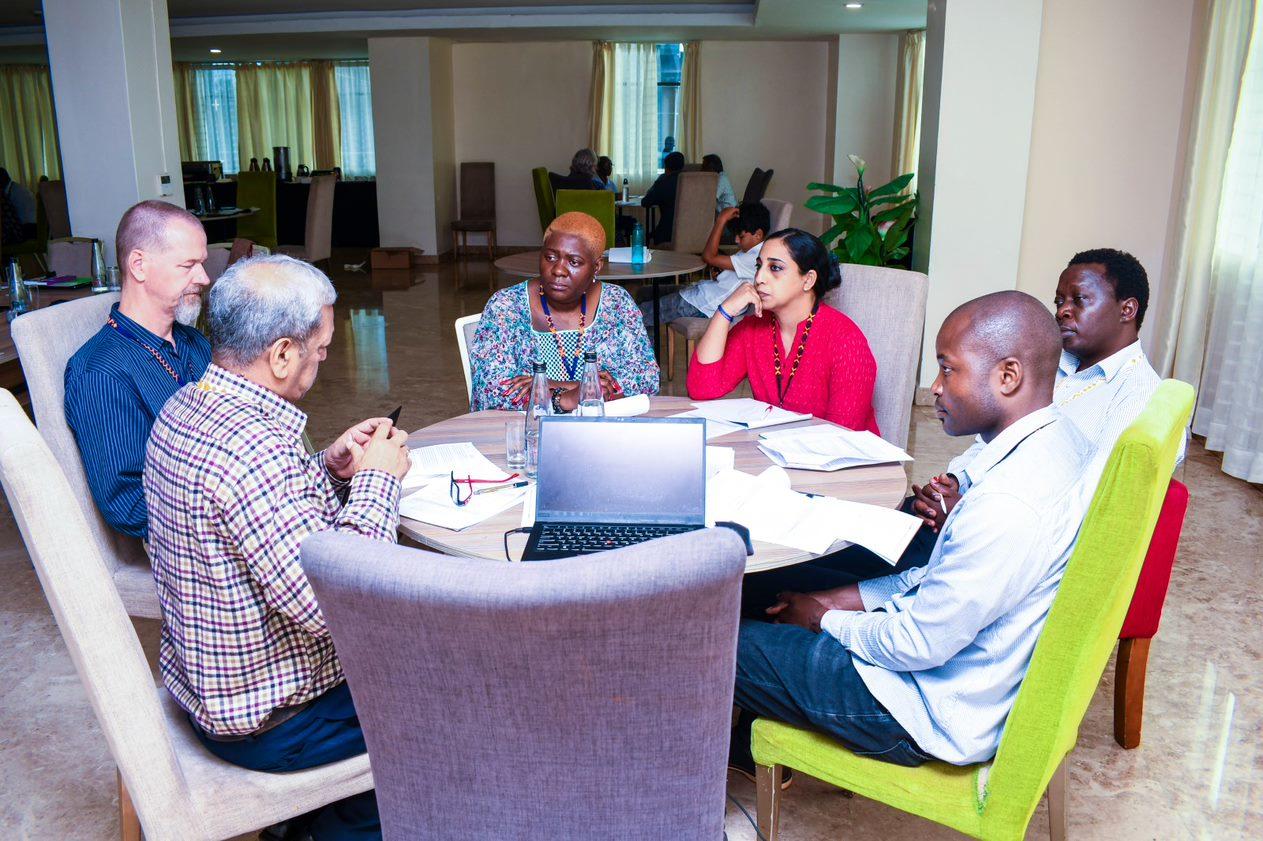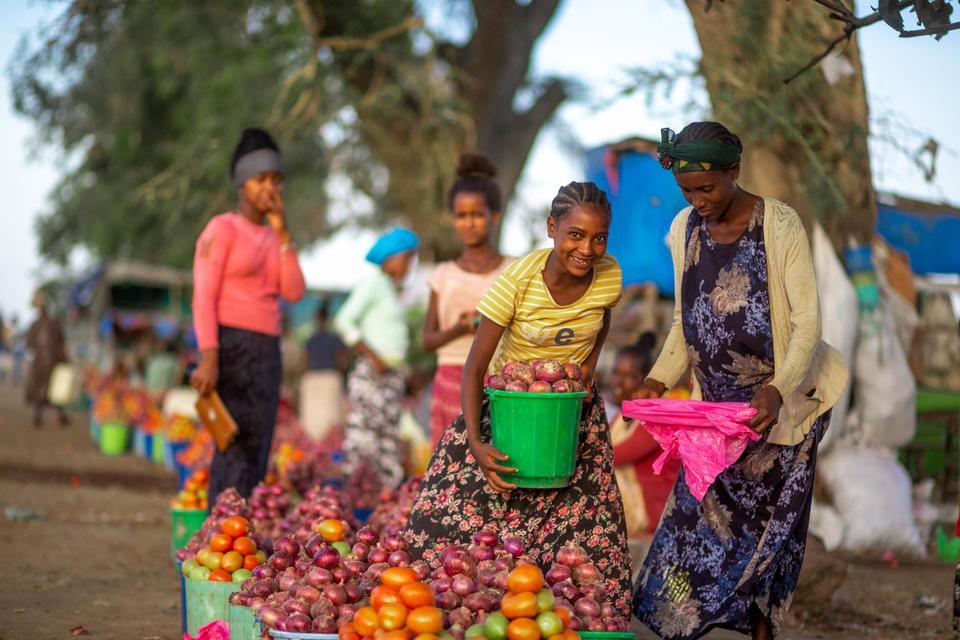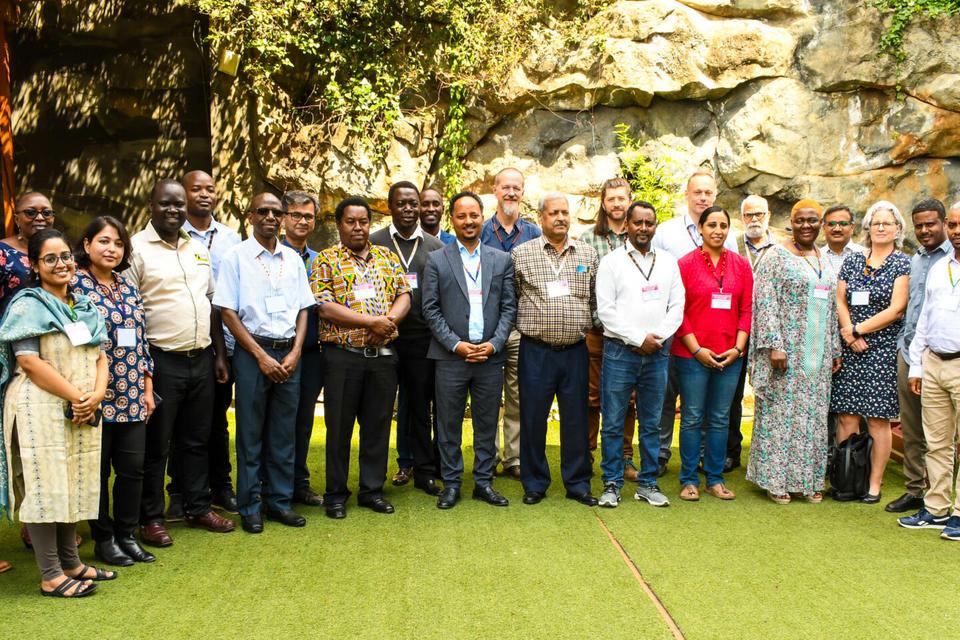Research Articles Socio-Technical Innovation Bundles (STIBs) for women’s empowerment and resilience in the agrifood system

The Socio-Technical Innovation Bundles (STIBs) framework, developed by the CGIAR's Initiative on Gender Equality, in collaboration with the International Institute for Environment and Development (IIED), offers a systematic approach to enhance women's empowerment and resilience in the agrifood system by addressing gender-specific barriers and challenges, combining technological and social innovations in a demand-driven and context-specific manner.
By: Eileen Nchanji, Ranjitha Puskur, Lutomia Cosmas, Dessalegn Ketema, Everisto Mapedza, Hom Gartaula, Prama Mukhopadhyay, Kevin Johnstone and Sam Barrett
The climate is changing, with many negative effects, particularly making smallholder women and men farmers and their livelihoods vulnerable (Awiti, 2022; McOmber, 2020; William et al., 2018). While new farming and food systems technologies have been developed and continuously promoted to support climate change adaptation, women farmers and marginalised socio-economic groups have limited access to those owing to a variety of reasons, including constraining social and gender norms (Koo et al., 2022; Saran et al., 2022; Nchanji et al., 2022). In addition, there is not enough or conclusive evidence of whether these technologies are able to enhance the resilience and empowerment of women when they use them (Barrett et al., 2022).
We also know that technologies need to be combined with other services (credit, advisories, training) or institutional arrangements (e.g., input and output markets) to enable women (and men) to access and be able to use them. This idea of packaging or bundling interventions is not entirely new, and we have been doing this for a while. The challenge is that it is done in an ad hoc manner, and we muddle through the processes of responding to challenges and constraints to technology adoption as they are ‘discovered’ or emerge. And experience shows that these packages should be demand-driven rather than supply-driven. It is critical to have a clear understanding of the socioeconomic, environmental, Policy and institutional contexts farming households are embedded in, for technologies to be relevant and have an impact.
It is important that we develop a systematic way of understanding the needs and bringing together necessary complementary actions/interventions or Socio-technical Innovation Bundles (STIBs) to accelerate the uptake of the technologies of women. And we need to ensure we go beyond just reaching women with these technologies, which promote climate-smart agriculture but are able to benefit them by enhancing their resilience and empowering them through the RBET framework. A key element of the CGIAR's Initiative on Gender Equality (HER+) is to develop practical guidance on systematic bundling of innovations to enhance women farmers’ resilience to climate change. This will be achieved through co-designing and testing bundles of social and technological innovations and processes in a few contexts in agri-food systems in the global South.
Developing a framework for Socio-Technical Innovation Bundles (STIBs)
The STIBs framework developed by the Initiative in collaboration with the International Institute for Environment and Development (IIED) addresses the gender-specific barriers and challenges that inhibit women's empowerment and resilience in various contexts. It comprises 61 indicators categorized into five groups: technological innovation and innovation capacity, climate resilience and adaptive capacity, livelihoods and income resilience, social innovation, and empowerment.
The STIB framework was developed based on a literature review that examined the relationship between gender, technology, resilience, and climate-smart agriculture. The Realist synthesis methodology was used to identify contexts, mechanisms for change, and outcomes. The schematic below captures the range of issues that interact to determine women’s access to and effective use of technologies.
The literature review revealed that gender norms and structures significantly hinder women's empowerment. Women face various issues, such as limited access to productive land, lack of credit for business support, disproportionate domestic and childcare responsibilities, limited access to education and training, and lower decision-making power within households. For example, while social capital positively affected women, structural barriers and limited access to resources hindered women's empowerment. Discussion of the framework by stakeholders and partners highlighted the need to address aspects such as human development, adaptive capacities, and digitization, as they create enabling an enabling environment while building capacities of men, women and youth farmers. The discussions also emphasized the importance of integrating the existing norms and practices, power relations, and unintended consequences like gender-based violence. It was also recognized that gender-responsive policies and institutional arrangements, which include land rights and titling, water infrastructure provision (both for household and agricultural uses) and, education and information provision (using mobile phones, TV, drama, radio programs, digital platforms, and pictorial aids) are critical enablers. At the local and micro levels, one also needs to be cognisant of intra-household dynamics and be able to tap into local knowledge and experiences and collective action. The approaches need to engage entire households, including youth. Identifying entry points in implementing social, technical, technological, and institutional innovations is crucial and should include baseline assessments and actor and stakeholder mapping, including an understanding of relationships and power dynamics.
The STIBs framework provides a comprehensive approach to addressing women’s barriers and challenges in achieving empowerment and resilience. By considering the specific contexts and leveraging various enablers, this framework aims to promote gender equality and women's agency in the face of climate change and other challenges.
Meet the Team

Nchanji Eileen Bogweh
Gender and Social Inclusion Expert


